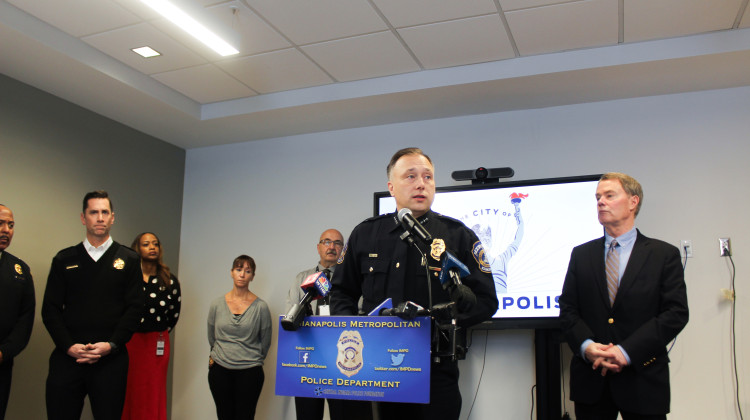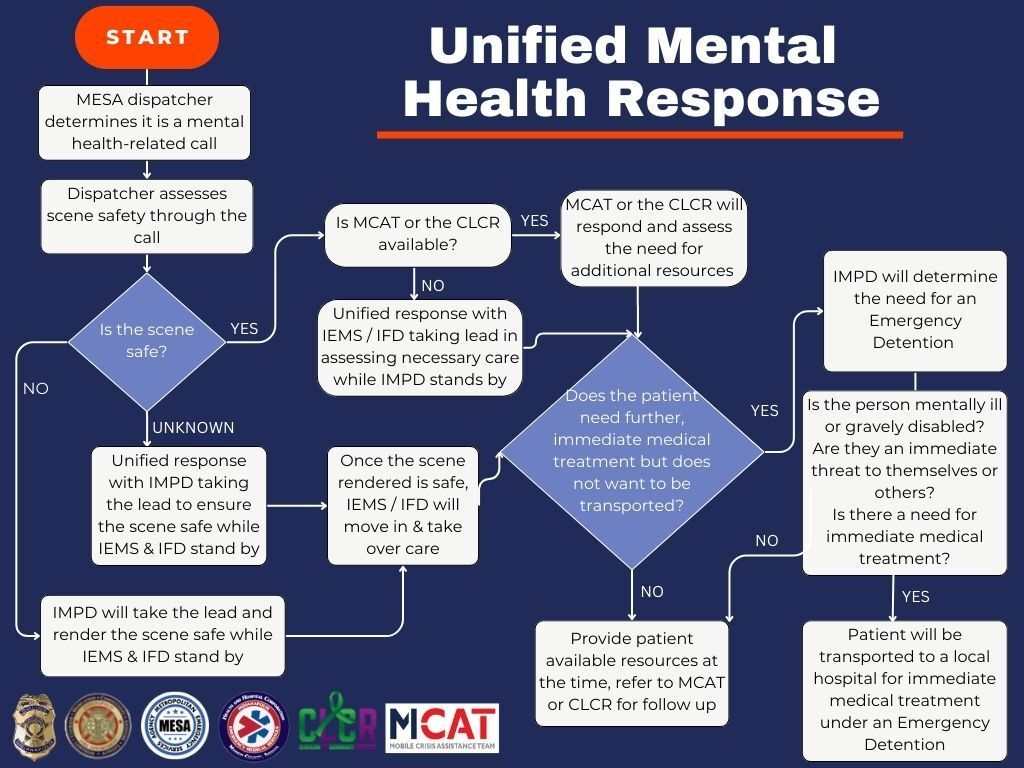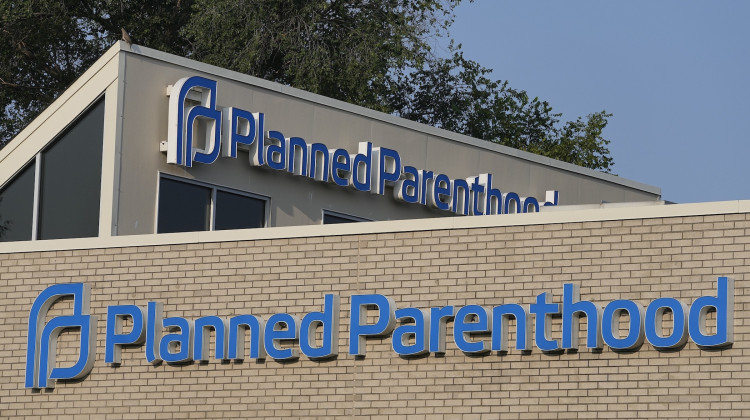
Indianapolis Metropolitan Police Department Chief Chris Bailey speaks at a press conference on Tuesday, January 7, 2025 announcing the city’s new Unified Mental Health Response Initiative. Bailey said he believes police aren’t always necessary or appropriate for responding to mental health crises.
Farrah Anderson / WFYIIndianapolis Mayor Joe Hogsett and Indianapolis Metropolitan Police Department Chief Chris Bailey unveiled the city’s plan for a new Unified Mental Health Response Initiative.
The new program combines police and other first responders from the fire department and EMS, to address mental health calls throughout the city.
Since the beginning of 2024, more than 2,000 mental health emergency response calls in Marion County have been answered by the Mobile Crisis Assistance Team as of November, according to reporting from the Indianapolis Star.
IMPD also estimated that in 2023 only 20% of IMPD’s radio runs each day are related to actual law enforcement, while more than 80% are for issues such as mental health.
In recent years, Indianapolis responded to mental health crisis calls in one of two ways. The first involved IMPD officers responding to mental health crisis calls alone. And the second, which started in 2017, involved the Mobile Crisis Assistance Team, which consisted of a police officer, a paramedic, and a licensed mental health professional who is trained in how to de-escalate situations and respond to mental health, substance use, and medical crises.
Then, in 2023, the city launched the Clinician-Led Community Response Team, which sends licensed clinicians only to respond to mental health calls. It allows licensed behavioral health professionals to respond to specific 911 calls that aren’t determined to need police –– but only during certain hours and in limited geographic areas.
This new unified initiative is designed to cover all of Indianapolis and cut down on police involvement in mental health crises.
“We also know there are times when the presence of an officer can make a situation even more uncertain than it already is,” Chief Bailey said at a press conference Tuesday morning.

Under the new program, once a dispatcher determines it’s a mental health-related call, they have to decide if the scene is safe. If it’s not, IMPD will take the lead. If it is, the unified response team will respond when the MCAT and CLCR teams are not available. And if the scene safety is unknown, the unified response team with IMPD taking the lead would respond while EMS and Indianapolis Fire Department responders stand by. Once the scene is safe, EMS and IFD will take over care.
At the press conference, Chief Bailey explained that IMPD will determine whether a person should be arrested or transported to a hospital for emergency detention.
According to Bailey, this decision is based on proving that the person has been diagnosed with a mental illness, is gravely disabled, is in immediate need of hospitalization and treatment, and or poses a danger to themselves or others.
The new response team starts training this week, and is set to launch late January, officials said.
After announcing the program, Mayor Hogsett said this new initiative will help cut down on gaps the current services may leave.
“Indianapolis residents can expect to be met with services and resources that they need when in a mental health crisis, no matter what time of day it is or where in the city they are located,” Hogsett said.
Farrah Anderson is an Investigative Health Reporter at WFYI and Side Effects Public Media. Contact her at fanderson@wfyi.org. Follow her on X @farrahsoa.
 DONATE
DONATE






 Support WFYI. We can't do it without you.
Support WFYI. We can't do it without you.